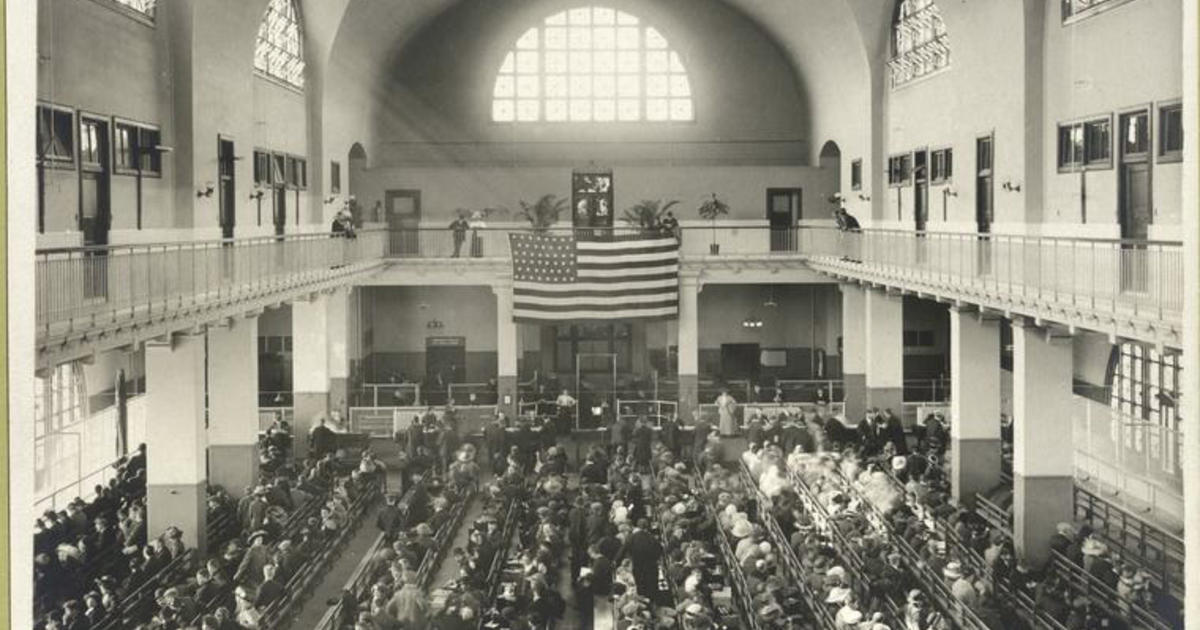Opponents of people’s freedom to cross national borders to where the best jobs are, aka open borders, make a rookie error: they engage in static analysis and overlook the dynamism of social processes that freedom produces.
I was recently asked on Facebook: “Are you enjoying Biden open borders?” There’s the mistake right there. People who ask that question look at a bad situation, say, the mess at the southern border; imagine one policy change, namely, the removal of restrictions on movement; and stop there. It’s as if that policy shift would prompt no changes in how people, including Americans, behave. Because of their static analysis, the opponents of the freedom to move foresee disaster.
But hold on. That’s like assuming that a significant change in the tax laws — in either direction — wouldn’t prompt significant changes in people’s tax-related behavior. It assumes that at least some people are not purposeful beings and do not respond to incentives and disincentives. But we know otherwise. For example, since World War II, federal taxes collected have been a fairly consistent percentage of GDP regardless of the changes in the tax rates. Why would that be? You know why. People respond to incentives and disincentives. Elementary to the economic way of thinking.
Pointing out this error is one of the first things a market advocate would tell an interlocutor who committed it. Frédédric Bastiat’s wonderful “What Is Seen and What Is Not Seen” taught the lesson in reverse: he showed that an obstacle, a broken window, prevented a shopkeeper from acting as he would have acted but for the need to overcome the obstacle, that is, the need to buy a new window. He couldn’t use the money to buy books, shoes, or something else. Those who focus on how societies full of actual people work understand this. You can’t leave human action out of the picture.
In the real world, decriminalizing foreign workers’ freedom to move would represent profit opportunities not only for aspiring immigrants but also for entrepreneurial Americans. Yet the opponents only consider what foreigners would do. How could they have forgotten the Americans? What, they don’t like profit?
The southern border is indeed a mess. Many people are assembling there, many of whom are evading the government officers (yay!) and sneaking in or are entering with provisional approval or helpless acquiescence. The government seems overwhelmed. Some governors have cynically shipped the newcomers to other states without their consent, using them cynically as pawns. Shame! Everyone can agree that something has to change.
Freedom-of-movement advocates say the solution is to remove all the restrictions — not just restrictions on entry but all the restrictions on what people can do once they cross the border. Here’s the point: that requires eliminating all the rules on how Americans may deal with the newcomers. Right now, it’s illegal to hire and rent to border crossers who lack the “right” government papers. As Chandran Kukathas eloquently reminds us, the government cannot limit the freedom of “outsiders” without also limiting the freedom of “insiders.” How easily that is overlooked!
So “open borders” means more than the mere literal dropping of entry restrictions. Laws against American conduct would also necessarily be repealed. Commercial relations between Americans and newcomers would be decriminalized.
Immigrants come here to work (to make better lives and to send money home to their families); they need jobs, housing, medical insurance, and other goods and services. Decriminalization on both sides of the ledger would replace the hazardous black market, with all its dangers of exploitation and worse, with a transparent legal market for labor, tenants, and customers.
Decriminalization, in other words, would invite entrepreneurs to form businesses designed to match newcomers with employers, landlords, etc. Job and housing brokers, or exchanges, would set up shop near the border to offer their services. Other firms might offer transportation to private employment and housing centers. The possibilities are nearly endless. (They’d be even better if the myriad destructive housing restrictions were repealed.) No one can say how exactly it all would look because entrepreneurship consists of discovery. That’s its genius.
This open market, by the way, would function as an invitation to workers who want to multiply their incomes 2 to 15 times through increased productivity. That’s what happens when people are free to move from poor low-productivity to rich high-productivity countries. It’s win-win, as free exchange always is.
There’s no excuse for static analysis when it comes to immigration. Dynamic market analysis is not some new thing. It’s one of the first points that free-market advocates draw attention to. Unfortunately, even some smart pro-market people overlook dynamism and say dumb things. For example, Thomas Sowell once said, “You can’t let everyone come to America because if everyone came to America, it wouldn’t be America anymore.”








